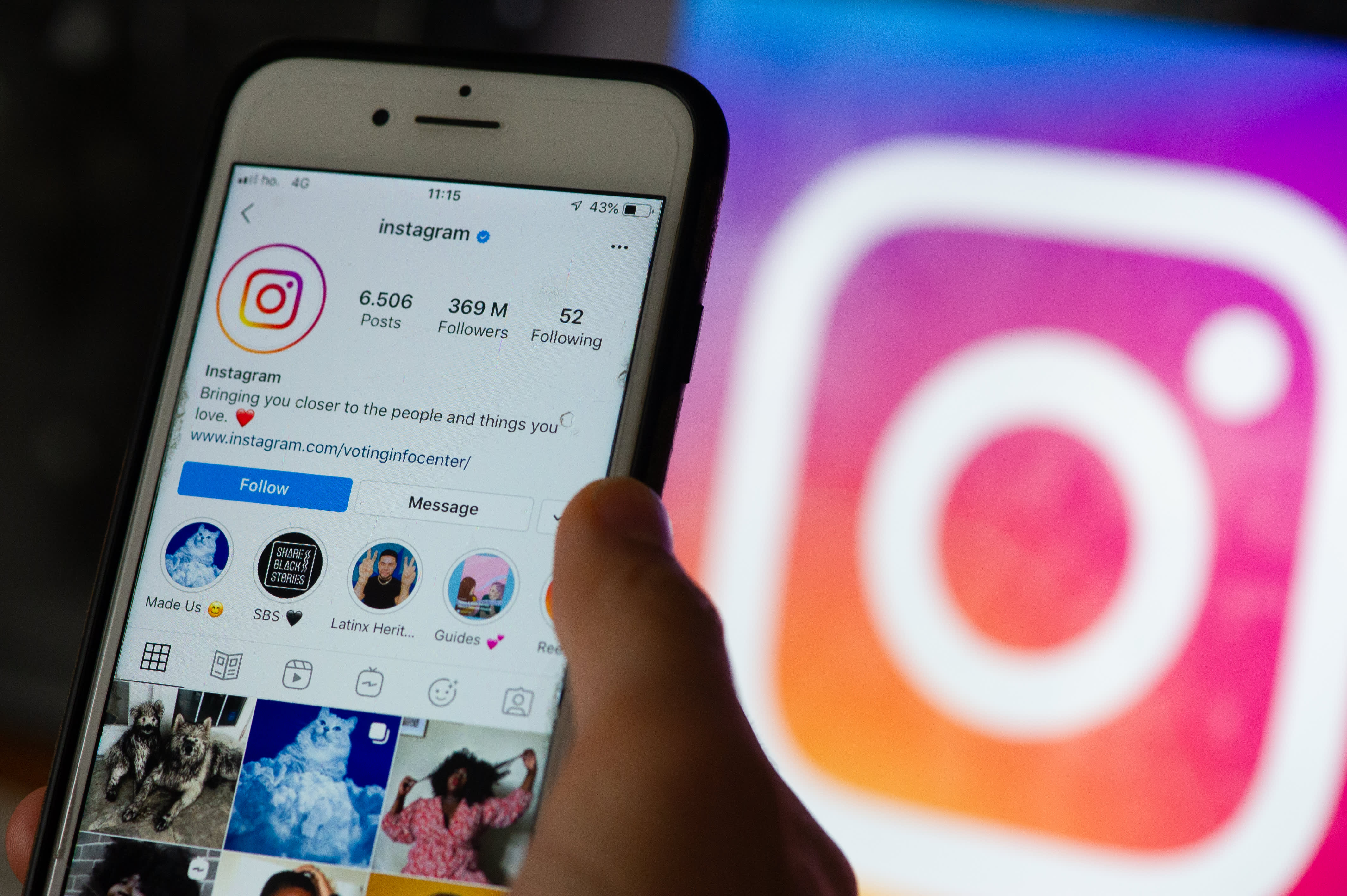Facebook trains A.I. to ‘see’ using 1 billion public Instagram photos

A person using Instagram.
Lorenzo Di Cola | NurPhoto via Getty Images
Pugs, Ferraris, mountains, brunches, beaches, and babies — Instagram is full of them. In fact, it’s become one of the largest image databases on the planet over the last decade and the company’s owner, Facebook, is using this treasure trove to teach machines what’s in a photo.
Facebook announced on Thursday that it had built an artificial intelligence program that can “see” what it is looking at. It did this by feeding it over 1 billion public images from Instagram.
The “computer vision” program, nicknamed SEER, outperformed existing AI models in an object recognition test, Facebook said.
It achieved a “classification accuracy score” of 84.2% when it attempted a test provided by ImageNet, which is a large visual database designed for use in visual object recognition software research. Basically, it tests whether an AI program can identify what’s in a photo.
New approach
Whereas many AI models are trained on carefully labelled datasets, Facebook said SEER learned how to identify objects in photos by analyzing random, unlabeled and uncurated Instagram images. This AI technique is known as self-supervised learning (SEER is a play on SElf-supERvised).
“The future of AI is in creating systems that can learn directly from whatever information they’re given — whether it’s text, images, or another type of data — without relying on carefully curated and labeled data sets to teach them how to recognize objects in a photo, interpret a block of text, or perform any of the countless other tasks that we ask it to,” Facebook’s researchers wrote in a blog post.
“SEER’s performance demonstrates that self-supervised learning can excel at computer vision tasks in real-world settings,” they added. “This is a breakthrough that ultimately clears the path for more flexible, accurate, and adaptable computer vision models in the future.”
While this is only a research project, a Facebook spokesperson said the potential uses were relatively broad. They include improved automatically generated text for describing images to people with visual impairments, better automatic categorization of items sold on Facebook Marketplace, and better systems to keep harmful images away from the Facebook platform, the company said.
Privacy issue?
But many Instagram users may be surprised to hear that their images are being used to train Facebook AI systems.
“We inform Instagram account holders in our data policy that we use the information we have to support research and innovation including in technological advancement like this,” Priya Goyal, a software engineer at Facebook AI Research, told CNBC.
Facebook said it will open source some of its software so that other researchers can experiment with it.
“While we’re sharing the details of our research and creating an open-sourced library that will enable other researchers to use self-supervised learning to train models on uncurated images, we are not sharing the images or SEER mode,” said Goyal.
Other big tech companies including Google and Microsoft are also trying to push the boundaries of computer vision. Last summer, Google published the SimCLRv2 computer vision model, while OpenAI published iGPT 2.
